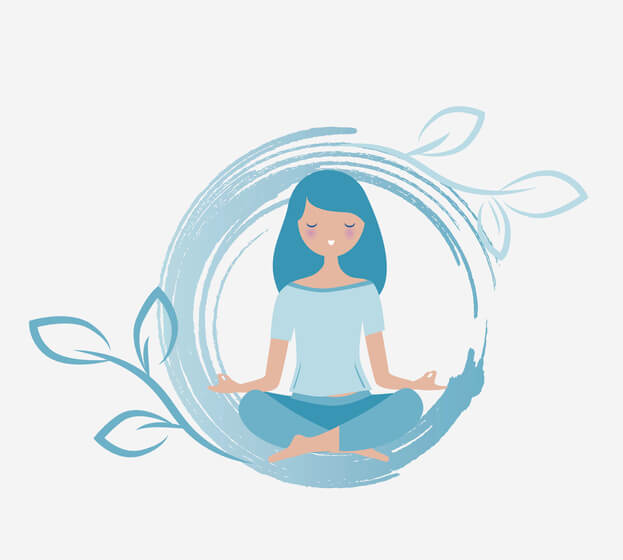Perfectionism can become a sickness that penetrates all areas of your life. Striving for perfection is different than trying hard to meet goals that represent high standards. When you strive to be perfect, you are operating within a rigid construct that is guaranteed to bring suffering.
Working towards the illusion of perfection is often based in shame and feelings of unworthiness or incompleteness. It can be considered the opposite of acceptance and self-love.
This is something that I have been working to heal for a while because I see how it is not only detrimental, but also a waste of my energy.
Many people are caught in the trap of believing in an illusive concept of perfection.
In this article, I will present how perfection is an illusion due its inherent nature. Here, I write about how perfection is a subjective construct, why striving for it can cause you to lose touch with yourself, and actually move further away from desirable states in many areas of your life, and why we get stuck in this trap in the first place.
How Can You Define Perfection Objectively?
The short answer is that you can’t. Perfection is completely subjective to the interpreter. What is perfect to one person is undesirable to the next person.
What people actually imagine as perfect is a collection of desirable circumstances, behaviors, or traits that are completely dependent on the specific person doing the imagining.
Your perception of perfect can change based on your mood, age, or life circumstances. The perfect life you imagined when you were 18 years old may not be so perfect when you are 40 years old.
If you were to spend your whole life moving towards that perfect life you imagined, you would be disappointed when you finally get there and it doesn’t feel perfect.

This also touches on the general illusiveness of perfection itself. When you are striving for perfection, you never truly get there. Once you get to what you thought was perfect, there is always something further to strive for.
You see this with people who base their success on material wealth, expensive possessions, symbols of status, or symbols of intelligence, such as educational degrees. They think their perfect and happy life will manifest when they gain certain external accomplishments.
The problem with striving for perfection in this way is that you believe that something outside of yourself defines your worth.
Or, you could be defining perfection based on someone else’s definition. It could be your parents, your spouse, or societal expectations of how to have the perfect family or be the perfect parent. (Learn more in The Nature of Fear & 5 Not-So-Scary Solutions.)
Every interpretation is subjective and based upon the observer’s own biases.
Losing Touch With Yourself Through Perfectionism
When you strive towards perfection, the tendency is to judge yourself pretty harshly. You make “sacrifices” that can cost you your sense of inner peace, your health, and you often lose your attentiveness to your needs.
You live from a shame-based place that centers around “shoulds” and “should nots” in order to achieve your draft of perfection.
In short, you disconnect from your true self in pursuit of a self that meets a set of criteria. (Learn more in How to Be Mindfully Aware of the Authentic Self.)

In this process, many people go years working towards drafts of perfection and get so entrenched in the pursuit that they forget what they are even seeking. They simply never get there.
The illusiveness of perfection goes on and for many people it ends when a big life event shakes them out of their sleep. They awaken to their true nature. For some, this pursuit goes on until they die.
When Striving for Perfection Backfires
The trait of perfectionism can backfire big time. As I already mentioned, you can end up making sacrifices that interfere with your basic needs, which could lead to mental and physical sickness.
Striving for perfection pushes you towards a tendency for rigidity, and fear of making mistakes.
Some of your greatest lessons actually come from being willing to fail, make mistakes, and be less than so-called “perfect.” Mistakes are necessary for growth. (Learn more in Moving Beyond Failure: A Lesson From Ashtanga Yoga.)
Striving for perfection can also be extremely isolating. You become less humble when you believe you are perfect or on a path towards perfection. It is easier to judge others when you are relentlessly judging yourself.
When someone does something that you perceive to negatively impact your ability to achieve perfection, you could become enraged and ultimately isolated.
Nobody is perfect. This is an important cliche because it has great truth.
In my own healing, in my work as a therapist, and as a yoga teacher, I have seen how striving for perfection can get in the way of healthy growth and relationships.
I see how it is actually the striving that leaves people feeling miserable, not the lack of whatever they deem they need to become perfect.
A great place to work on letting go of striving for perfection is on your yoga mat.
Every body looks different in asanas and your own body can change day to day. There is no perfect expression of a pose.

You can correct your alignment, but your expression of any asana cannot be evaluated of a spectrum of perfection. That concept goes against the basic fundamentals of a spiritual yoga practice.
Instead, you can accept and appreciate things as they are and find perfection in the level of effort you bring, rather than the outcome. (Learn more in The Freedom in Letting Go.)
Why Do We Believe in the Illusion of Perfection?
As a society we are bombarded by images in media and all around us that encourage comparison. It is easy to begin to draftlize some illusion of perfection when you are constantly comparing yourself and evaluating yourself as not enough.
It is common to individuals who have mental health challenges including depression, anxiety, and a history of trauma, to get stuck in these thinking patterns. They create some illusion of perfection that seems virtually unattainable for them. (Learn more in 5 Body-Positive Yogis You Should Be Following on Instagram.)

This has more to do with their own misunderstanding of their self worth than actual tangible things because as I already mentioned, perfection is subjective.
Often, this is something learned in childhood by caregivers who may have thought they were being supportive and pushing the child towards high achievement. Instead, the child internalizes a voice that is constantly telling them they are not good enough.
You Are Already Perfect
Yoga teaches us that you are already perfect, not in spite of, but because of your “imperfections.”
You are perfect exactly how you are at every moment because you simply just are.

We are always in process and changing. Imagining perfection as a fixed and stagnant goal is simply a fallacy.
This is not to say you cannot work towards goals. Do that! But enjoy the journey.
Give yourself permission to stumble.
Be gentle, compassionate, and patient with yourself and others.
Laugh when things don’t go as planned.
Life is more enjoyable when you allow yourself to move with the flow of the waves rather than thrashing against the current and almost drowning in the process.
Let go of striving and learn to flow in your own version of moment to moment perfection. (Learn more in The Roots of Suffering: Sprouted From the Mind, Healed by the Heart.)
During These Times of Stress and Uncertainty Your Doshas May Be Unbalanced.
To help you bring attention to your doshas and to identify what your predominant dosha is, we created the following quiz.
Try not to stress over every question, but simply answer based off your intuition. After all, you know yourself better than anyone else.